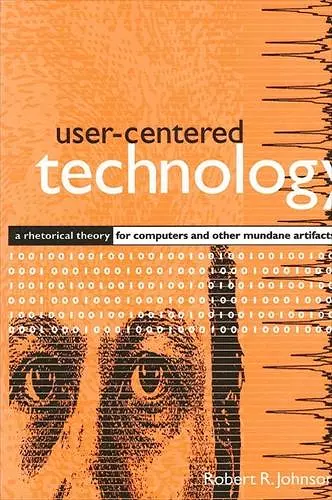User-Centered Technology
A Rhetorical Theory for Computers and Other Mundane Artifacts
Format:Paperback
Publisher:State University of New York Press
Published:5th Nov '98
Should be back in stock very soon

Presents a theoretical model for examining technology through a user perspective.
Winner of the 1999 Best Book presented by the National Council of Teachers of English NCTE Awards for Excellence in Technical and Scientific Communication
User-Centered Technology presents a theoretical model for examining technology through a user perspective. Johnson begins with a historical overview of the problem of technological use from the ancient Greeks to the present day-a problem seen most clearly in historical discussions of rhetoric theory. The central portion of the book elaborates on user-centered theory by defining three focal issues of the theory: user knowledge, human-technology interaction, and technological determinism. Working from an interdisciplinary perspective, Johnson uses rhetoric theory to present a definition of user knowledge; human factors engineering to illuminate the ideological presuppositions built into technology design; and history, philosophy, and sociology to explain technological determinism, possibly the greatest impediment to user-centered technology development in modern times. The latter part of the book applies user-centered theory in two contexts: the nonacademic sphere, where the writing and design of computer user documentation is discussed, and the academic sphere, through a discussion of how user-centered concepts might drive university technical communication and composition curricula.
"I believe that this book is a unique contribution to the field. The argument, based upon insightful analyses of a variety of sources, is enlightened. Robert R. Johnson has clearly revealed that the vast bulk of relevant research on technology and use/learning has been dominated by either system-centered or text-centered views. In addition, he places the evolution of these views in their theoretical/historical contexts. That alone is enlightening. But his analysis of the user-centered view is also a significant contribution because it provides a foundation, a rationale, if you will, for certain disparate but promising developments in ongoing efforts to adapt technological innovations for wide-ranging use." — Stephen Doheny-Farina, Clarkson University
ISBN: 9780791439326
Dimensions: unknown
Weight: 299g
195 pages